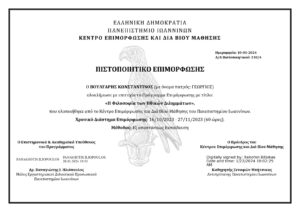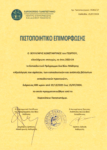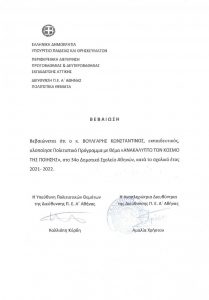“The Laughing Policeman” is a music hall song recorded by British artist Charles Penrose (published under the pseudonym Charles Jolly in 1922).
The song describes a fat jolly policeman who cannot stop laughing and has a chorus in which the sound of laughter is made in a sustained semi musical way by the singer.
I know a fat old policeman
He’s always on our street
A fat and jolly red-faced man
He really is a treat
He’s too kind for a policeman
He’s never known to frown
And everybody says he is the
Happiest man in town!
Oh, ha-ha-ha ha-ha-ha ha-ha-ha ha-ha-ha!
He laughs upon point duty
He laughs upon his beat
He laughs at everybody when he’s
Walking in the street
He never can stop laughing
He says he’s never tried
But once he did arrest a man
And laughed until he cried!
Oh ha-ha-ha ha-ha-ha ha-ha-ha ha-ha-ha!
His jolly face is wrinkled
And then he shut his eyes
He opened his great mouth
It was a wonderous size
He said, “I must arrest you”
He didn’t know what for
And then he started laughing
Until he cracked his jaw!
Oh ha-ha-ha ha-ha-ha ha-ha-ha ha-ha-ha!
So, if you chance to meet him
When walking ’round the town
Just shake him by his fat old hand
And give him half a crown
His eyes will beam and sparkle
He’ll gurgle with delight
And then you’ll start him laughing
With all his blessed might!
Oh ha-ha-ha ha-ha-ha ha-ha-ha ha-ha-ha!
on point duty: the stationing of a police officer or traffic warden at a road junction to control and direct traffic
on the beat: In police terminology, a beat is the territory that a police officer patrols. Beat policing is based on traditional policing (late 19th century) and utilizes the close relationship with the community members within the assigned beat to strengthen police effectiveness and encourage cooperative efforts to make a safer community. Beat police typically patrol on foot or bicycle which provides more interaction between police and community members.













































